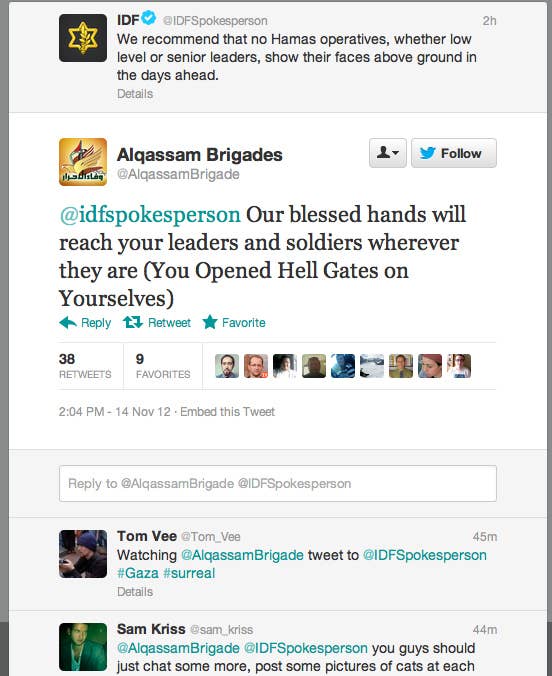
On October 10, thousands of law enforcement officials and government agents from around the world convened at a Marriott in Bethesda, Maryland, for the ISS World Americas conference. A month before, the conference center had hosted a comic book convention; in October, exhibitors with names like Nuance Public Security Solutions shook hands with foreign military leaders while nearby conference rooms hosted seminars with names like "FoCC: Filtering of Communication Content," and "Codename: Da Vinci. Attack, control and gather intelligence from personal devices."
This is a government-tech complex in the sense that you probably suspect it exists: a collection of largely unknown companies that exist solely to win poorly supervised government contracts, and which operate at the edge of the law and largely out of view. Its constituent companies fit a familiar, Halliburtonesque profile and rub shoulders with the traditional military-industrial complex — the Lockheeds and General Atomics if the world. They deal in goods and services that, as is the case with advanced weapons manufacturers, have no direct civilian equivalent. The stuff that's sinister by definition.
But the other half of the military-tech complex is much more familiar — there are no drones and no robots. This is the half borne of the rule that, where a civilian product exists, the government and military will usually either co-opt or adapt it, rather than create its own version. SIPRNet, the the source of the 250,000+ diplomatic cables leaked by Bradley Manning and published by Wikileaks, is compatible with Microsoft Outlook — it's merely a layer of encryption. The military is beginning to issue Android phones with special software to access secure networks. (Dont' worry: They are apparently "able to download Angry Birds.") POTUS has an iPad, which runs iOS just like any other iPad.
RIM, technologically a distant fourth in the smartphone wars, still supplies the de facto security-cleared e-mail device. The President of the United States is one of a dwindling group of people in the race to be the last BlackBerry user. (He may still carry an additional phone, designed in part by General Dynamics, called the Sectera Edge. This too is a consumer tech antique: It runs Microsoft's discontinued Windows Mobile.)
The notion of a separate government-tech complex, then, is largely a myth: Rather than existing alongside of the tech mainstream, it exists inside it, shrouded but ultimately still familiar. When the top intelligence official in the world, and therefore the most important figure in cyberwarfare, was looking for a way to conduct an affair, he went to Gmail, where he posted racy messages in an unsent folder, perhaps forgetting that the other arm of the military-tech complex, the one assembled from parts pitched at conferences like ISS World, was more than equipped to see inside.
The existence of everyday consumer tech in the highest echelons of government, military, and intelligence should have a deromanticizing effect — it's not the tools that provide technological power there, it's that they're not subject to the same laws, and they hold more important information.
This carries both upward and outward: In the last two days, we've seen messages of a nature usually reserved for uniformed spokespeople behind podiums blasted out on Twitter by @IDFSpokesperson, sandwiched between mundane headlines and retweeted jokes in users' feeds.

The messages border on declarations of war, and have been, unsettlingly, the one of the most visible indicators to the outside world of the precariousness of the situation in Israel over the last week. They've been jarring because they're unprecedented, and they have a flattening effect on the message: Blustery threats feel more absurd in a tweet box, next to a little blue bird. Maybe that's a good thing? Maybe they always should? But in any case they're still real.
This was inevitable: There is no high-security-clearance, dee-luxe version of Twitter. The war makers' microblogging service is the same as ours; the government that wrote the code that helped hijack Iran's nuclear program defer to a bunch of young engineers in San Francisco for their messaging. The government-tech complex is a complex of the gaps, creating technology only where it doesn't already exist. When they're not, the results are predictable: In the time DARPA's real-time voice translation project has been simmering (its first major contract was awarded in May), Microsoft has independently overshot the original proposal. Any bets on which tech we'll see in the field in 2020?
In the latest Bond film, Skyfall, which is at its core about cybersecurity, 007's gadget guy, Q, played a curious role. He supplied Bond with a gun and a radio.
There was no implication that, somewhere, hidden in the shadows, was a vastly more competent tech industry serving the interests of the British government, and no attempt to conjure a more imaginative version of a smartphone. Bond already had his own, a (product-placed) Sony, with Android. He used it to text.
